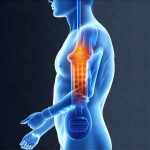Our modern lifestyles often prioritize convenience and comfort, leading many of us to spend extended periods seated – working at desks, relaxing in front of televisions, or scrolling through phones on the couch. While undeniably enjoyable, these prolonged bouts of inactivity can have a surprisingly significant impact on our digestive systems, frequently manifesting as constipation. It’s not simply about “sitting too much”; it’s about how this sedentary behavior disrupts fundamental bodily processes crucial for regular bowel movements. Understanding the connection between extended couch hours and constipation is vital for proactive health management and preventing discomfort that many silently endure.
Constipation isn’t merely an inconvenience; it can be a signal that something within our bodies needs attention. The digestive system, like any intricate machine, relies on consistent movement and stimulation to function optimally. When we remain largely stationary, this natural rhythm is disrupted, slowing down the passage of waste through the intestines. This slowdown allows more water to be absorbed from the stool, making it harder and more difficult to pass. Furthermore, reduced physical activity impacts gut motility – the muscular contractions that propel food along the digestive tract. Recognizing this link isn’t about demonizing relaxation; it’s about balancing comfort with mindful movement to support overall well-being. If test results indicate a deeper issue, consider exploring options for diet overhaul [https://vitagastro.com/signs-from-test-results-that-call-for-diet-overhaul/].
The Physiological Impact of Prolonged Sitting
Prolonged sitting directly affects several key physiological processes related to digestion and bowel function. Firstly, it diminishes the space available for internal organs to move freely and efficiently. Think of your digestive system as needing room to work – when compressed by extended periods in a seated position, its natural peristaltic movements become restricted. This compression isn’t just physical; it also affects blood flow. Reduced circulation means less oxygen and nutrients reaching the gut, further hindering its ability to function effectively. The abdominal muscles also weaken over time with disuse, providing less support for intestinal movement.
Secondly, sitting for long durations actively suppresses metabolic activity. Our bodies are designed for motion, and even seemingly small movements throughout the day contribute significantly to overall health. When we sit, our metabolism slows down, impacting not only digestion but also cardiovascular function and insulin sensitivity. This reduced metabolic rate can lead to a build-up of toxins in the body, further contributing to digestive sluggishness. It’s important to remember that even brief periods of movement – standing up, stretching, or walking around – can counteract these negative effects.
Finally, psychological factors also play a role. Often, extended couch hours are associated with stress and emotional eating, which can negatively impact gut health. Stress hormones can disrupt the delicate balance of the gut microbiome, leading to inflammation and altered bowel habits. The combination of physical inactivity, reduced blood flow, weakened abdominal muscles, and potential stress creates a perfect storm for constipation to develop. Understanding digestive data over time [https://vitagastro.com/key-takeaways-from-tracking-digestive-data-over-time/] can provide valuable insights into these patterns.
Understanding Gut Motility & Peristalsis
Gut motility refers to the movement of food through the digestive tract. It’s driven by peristalsis, rhythmic contractions of the intestinal muscles that propel waste along. Think of it like a wave moving down a hose – this wave-like motion is essential for efficient digestion and elimination. When we are active, gravity and muscle contraction work together to facilitate this process. However, prolonged sitting disrupts these natural mechanisms. The lack of movement reduces the strength and frequency of peristaltic contractions.
This disruption can lead to several problems: – Delayed gastric emptying (food stays in the stomach longer) – Increased water absorption by the colon, resulting in harder stools – Reduced intestinal transit time (the time it takes for food to move through the digestive system). Furthermore, a sedentary lifestyle can negatively affect the vagus nerve, which plays a critical role in regulating gut motility. The vagus nerve acts as a communication pathway between the brain and the gut, influencing digestion and bowel function. If you suspect gut lining damage [https://vitagastro.com/signs-from-testing-that-show-gut-lining-damage/] is contributing to your issues, seeking professional evaluation is crucial.
To counteract this, incorporating regular physical activity is paramount. Even small changes, like taking short walking breaks every hour or doing simple stretches at your desk, can significantly improve gut motility. Focusing on exercises that engage the core muscles – such as Pilates or yoga – can also provide support for intestinal movement and promote healthy bowel function. Consider what you can learn from testing [https://vitagastro.com/what-you-can-learn-from-testing-after-switching-diets/] after making dietary changes.
The Role of Hydration & Fiber
Adequate hydration is absolutely crucial for preventing constipation, especially when combined with extended sitting. Water helps to soften stools, making them easier to pass. When we are sedentary, our bodies require less water overall, but maintaining sufficient hydration remains vital for digestive health. Dehydration exacerbates the effects of inactivity by further reducing stool softness and slowing down intestinal transit time. Aiming for at least eight glasses of water per day is a good starting point, but individual needs may vary depending on activity level and climate.
Alongside hydration, dietary fiber plays an indispensable role in promoting regular bowel movements. Fiber adds bulk to the stool, stimulating peristalsis and helping waste move through the digestive tract more efficiently. There are two main types of fiber: soluble and insoluble. Soluble fiber dissolves in water, forming a gel-like substance that softens stools. Insoluble fiber adds bulk and helps food move through the digestive system faster. A balanced diet rich in both types of fiber is ideal.
Excellent sources of fiber include fruits, vegetables, whole grains, and legumes. However, simply increasing fiber intake without adequate hydration can actually worsen constipation. Therefore, it’s essential to drink plenty of water alongside a high-fiber diet. Consider incorporating foods like apples, berries, broccoli, beans, lentils, oats, and brown rice into your regular meals. Comprehensive stool analysis [https://vitagastro.com/what-to-expect-from-a-comprehensive-stool-analysis/] can help determine if you are getting the right amount of fiber.
Counteracting Sedentary Behavior: Simple Strategies
Breaking up long periods of sitting is the most effective way to mitigate the risk of constipation associated with extended couch hours. This doesn’t require a complete lifestyle overhaul; small, manageable changes can make a significant difference. One approach is the “20-8-2 rule”: Every 20 minutes, stand up and move around for 8 minutes, followed by 2 minutes of stretching. This simple routine interrupts prolonged sitting and encourages blood flow.
Another strategy is to incorporate active breaks into your daily routine. Instead of reaching for your phone during commercial breaks, walk around the room or do some light exercises. If you work from home, consider using a standing desk or taking walking meetings. Even parking further away from the grocery store can add extra steps to your day.
Finally, prioritize regular exercise. Aim for at least 30 minutes of moderate-intensity exercise most days of the week. This could include brisk walking, jogging, swimming, cycling, or any activity you enjoy that gets your body moving. Consistency is key – even short bursts of activity throughout the day can have a cumulative effect on digestive health and overall well-being. Remember to consult with a healthcare professional before starting any new exercise program. If you are recovering from eating disorders, [https://vitagastro.com/gi-diagnostics-used-in-recovery-from-eating-disorders/] GI diagnostics may be helpful. Also, pay attention to early signs [https://vitagastro.com/top-early-signs-from-stool-tests-that-need-follow-up/] in stool tests that might need follow up.


















